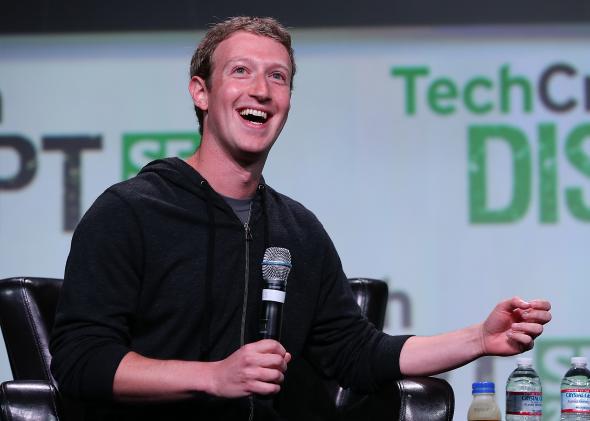Facebook had a very good quarter. Wednesday’s earnings report beat estimates by enough of a margin (31 cents versus expected 27 cents per share) that the stock had shot up 16 percent as of the market opening Thursday. Revenue is way up, about 75 percent in Q4 2013 over Q4 2012. While the market is celebrating Facebook’s results, let’s take a look at what their overperforming quarter might mean for their own users and for consumers in general.
The biggest structural change in Facebook’s business was the shift to placing advertisements in your news feed rather than beside it, a strategy that Facebook trumpeted repeatedly on Wednesday’s earnings call. Given the space limits on mobile devices, the ability of news feed ads to look like friends’ posts, and the added intrusiveness, this change has contributed to three results:
- Ad click-through rate (CTR) soared to 4.5 times what it was a year ago.
- Advertiser cost per impression (CPM: cost per thousand impressions) is way up, almost triple what it was a year ago, while cost per actual click is up 29 percent.
- Advertising revenue per user is up 25 percent, with most of that increase coming from the U.S. and Europe.
Given that Facebook had been reduced to claiming in July 2012 that CTRs weren’t important for social ads, their trumpeting of CTRs now seems to be a nice recognition of reality and good news for the company.
In short, Facebook is monetizing its most frequent users to a far greater extent than it has in the past. While revenue per user is up only 25 percent, revenue per user visit is up 71 percent year over year. Combined that with Facebook’s declining growth in users, and clearly Facebook is milking its most frequent users a lot more.
This increased monetization of users also owes to Facebook’s movement to mobile, which allows those frequent users to be on Facebook that much more often. Sheryl Sandberg stressed that mobile ad revenue for Q4 2013 was as great as all ad revenue from Q4 2012. But these statistics only underscore the one-time structural nature of Facebook’s gains over the last few quarters. The switch to mobile and the switch to news feed ads are what drove the gains. Gains from the actual quality of the ads do not seem to be forthcoming. People are not clicking on the ads because they are better, but because they are harder to ignore.
Facebook will need to continue to rely on structural changes to their user experience in order to gain more revenue out of a user base that is leveling off. Unlike Google, whose core business of search ads has remained robust, Facebook is in a position where their core business must significantly evolve in order for them to make good on their market capitalization.
So you should expect to see many more news feed ads in your future (unless you’re using an ad blocker like I do). Oddly, Mark Zuckerberg remarked with some pride that as the news feed ad volume had grown, user CTR had remained stable. This reinforces the impression that overall advertisement relevance simply has not improved, and Facebook’s better CTR is coming about through the user interface change of shoving their ads more closely into your face. Little wonder, then, that Zuckerberg’s current stated goal is to reach the point where “the ads are as relevant and timely as the content your friends share with you.”
That evolution currently is taking the form of integrating advertising as tightly into the user experience as possible. Ideally, advertising will be indistinguishable from your online social interactions. Advertisers will be your friends, and vice versa. This commodification of social life is Facebook’s chosen path, as well as one Google is attempting to ape with Google Plus. This trend unnerves me, but perhaps in 20 years, the integration of advertising and social interaction will seem as innocuous and natural as premarital sex or rock music seems to us today, and I will be considered hopelessly square for using an ad blocker. That’s Mark Zuckerberg’s hope.
